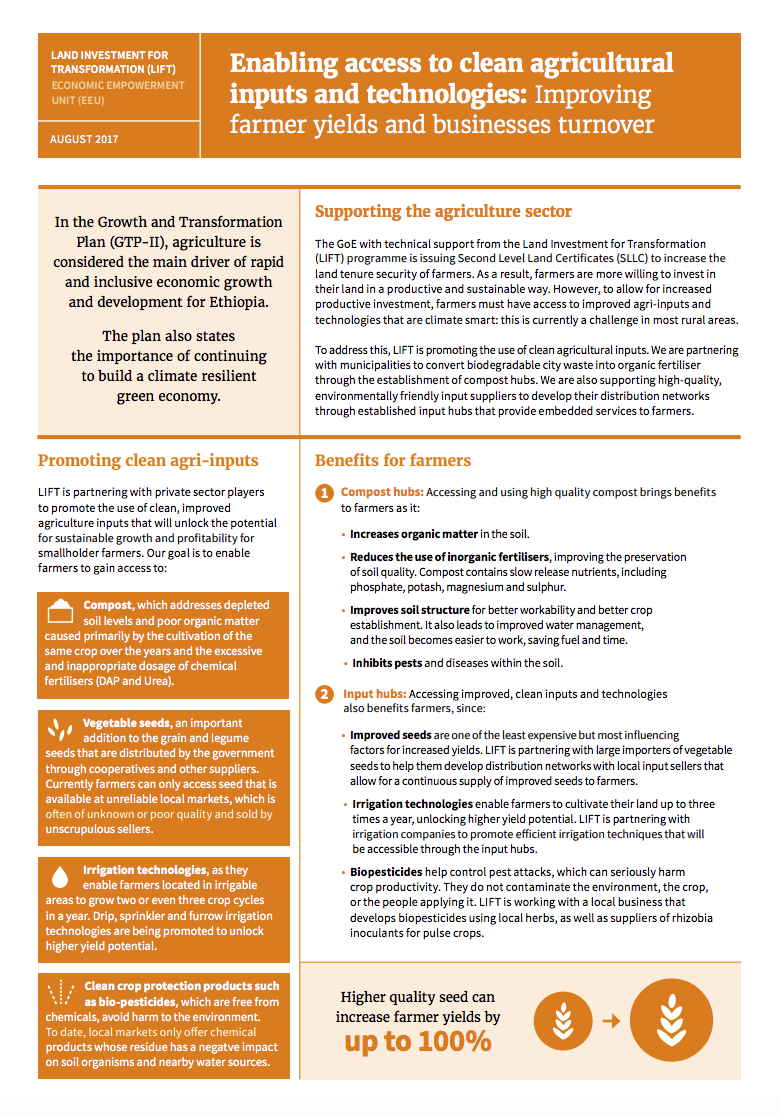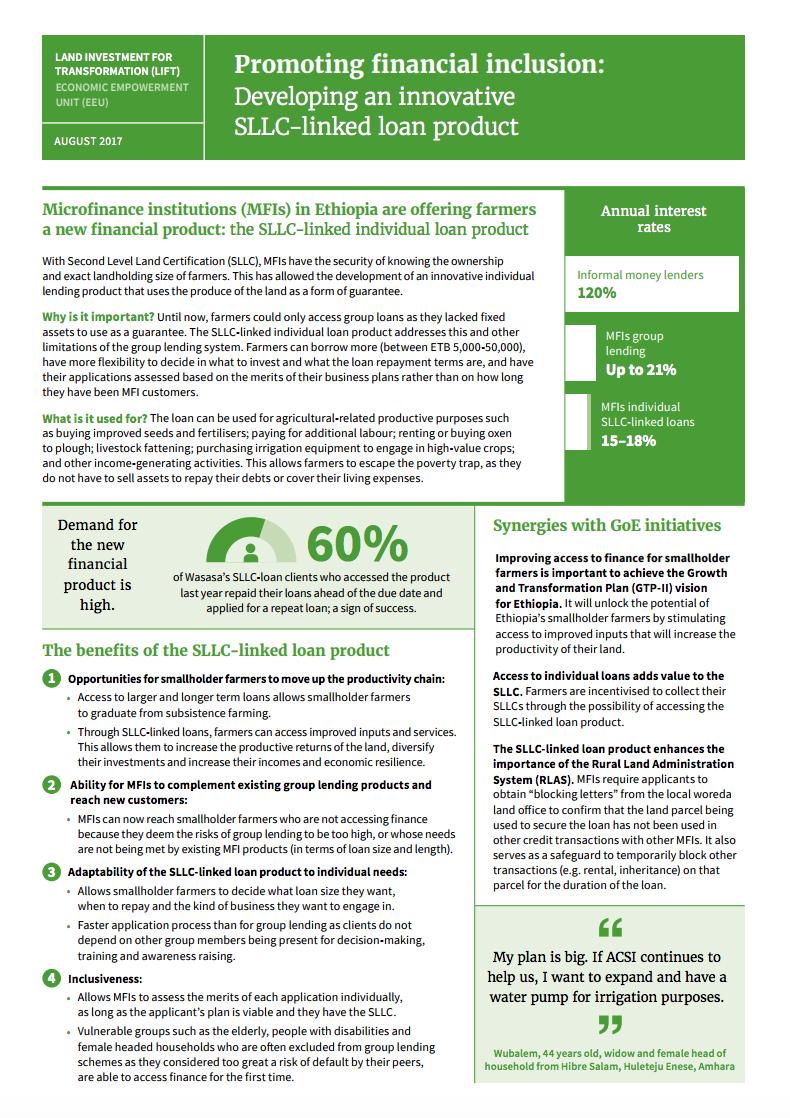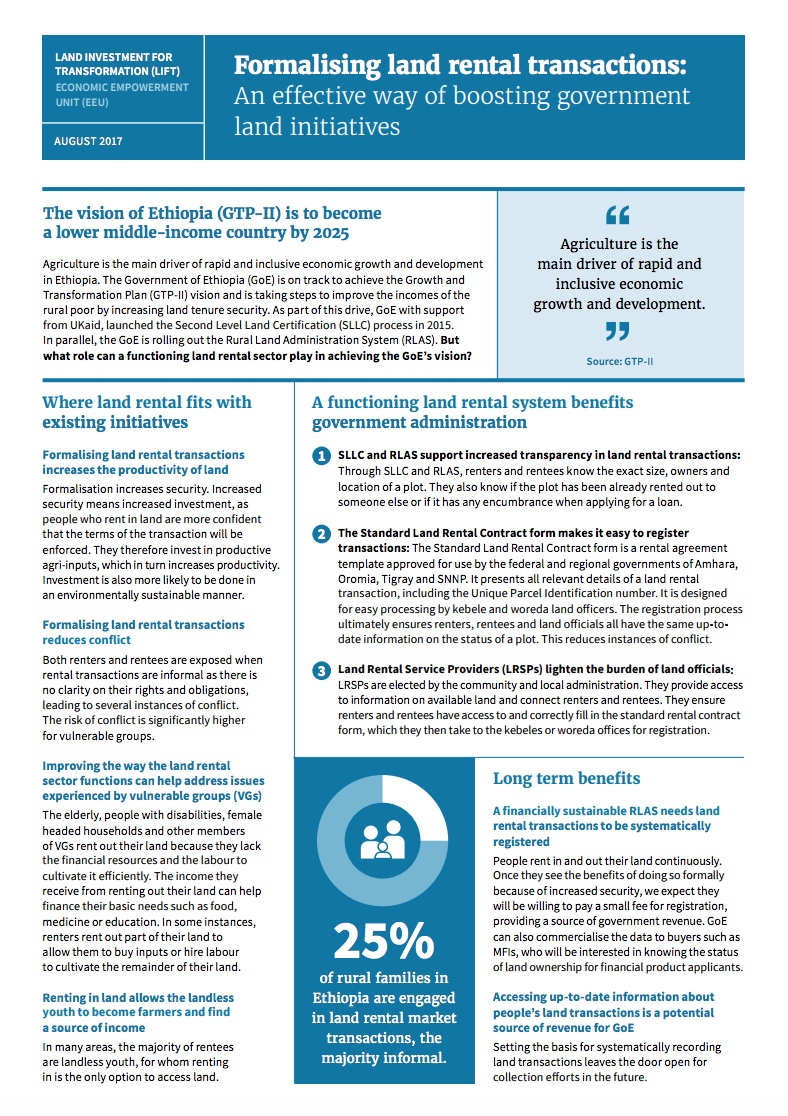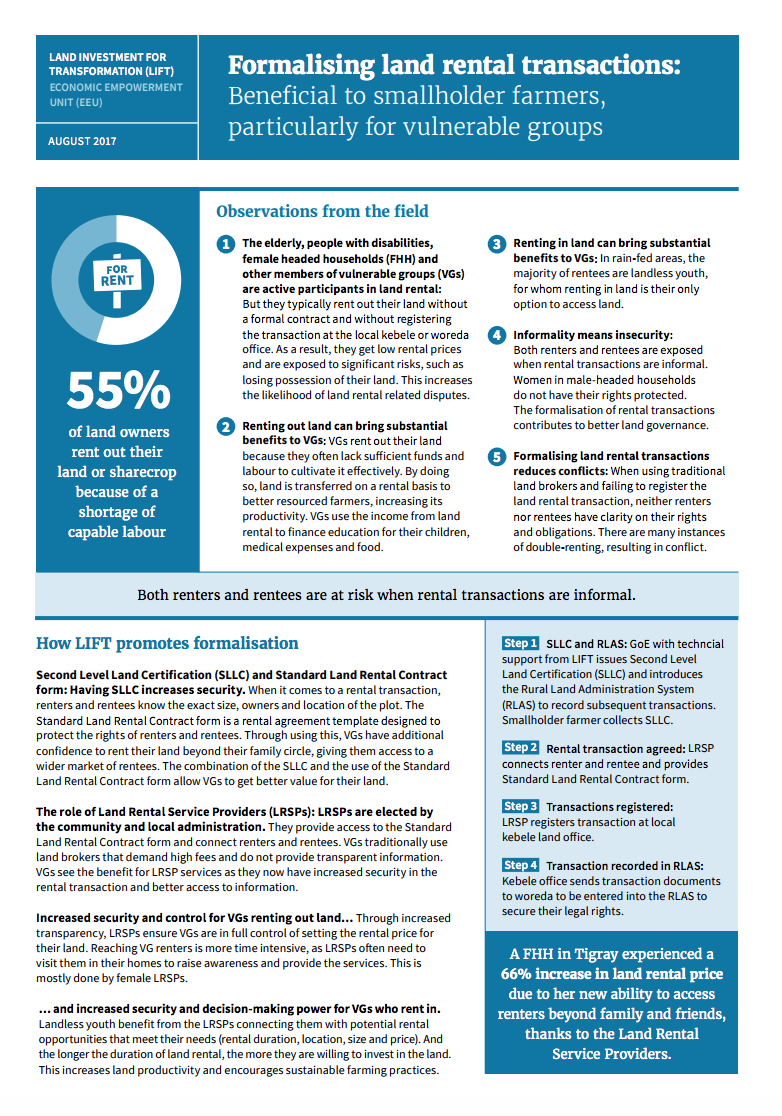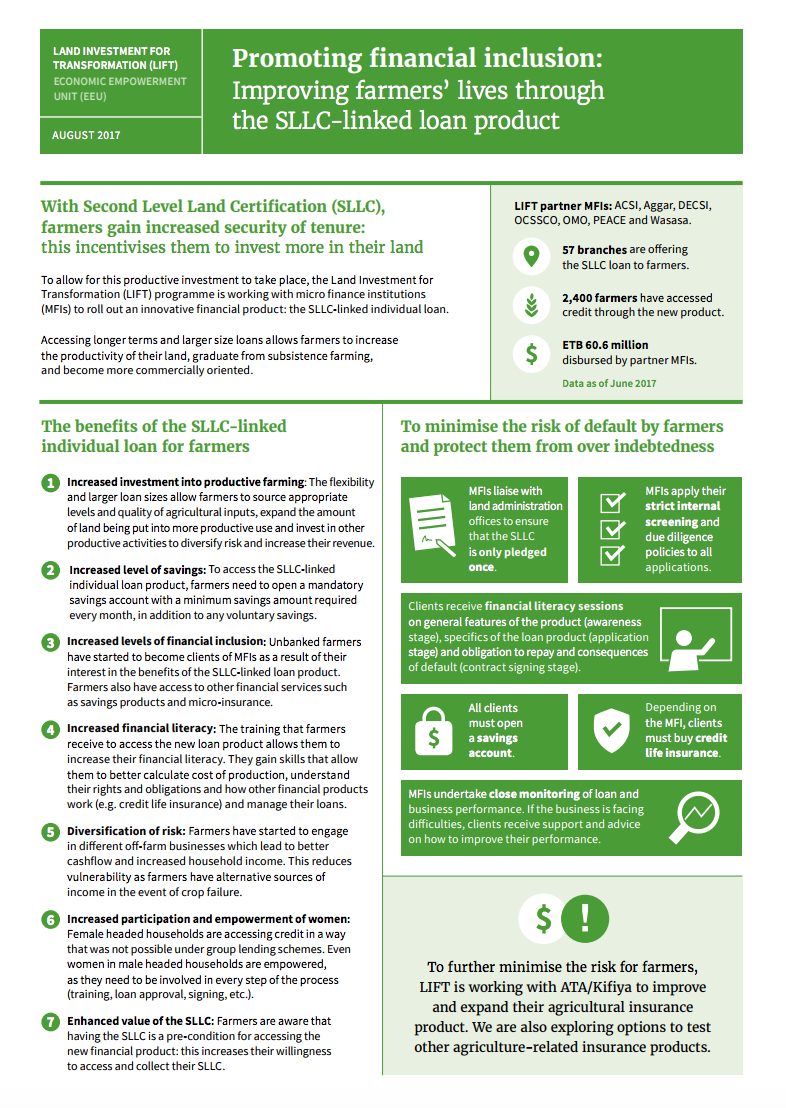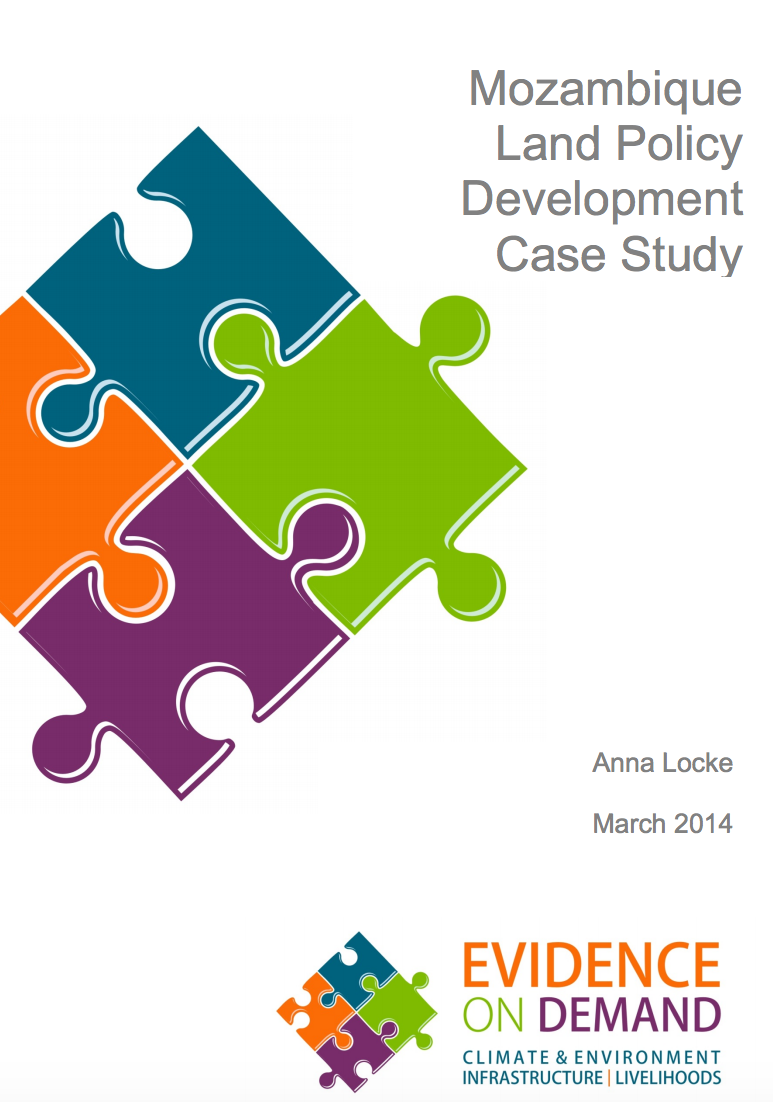
Topics and Regions
Details
Location
Contributions
Displaying 1 - 10 of 12Enabling access to clean agricultural inputs and technologies: Improving farmer yields and businesses turnover
Supporting the agriculture sector
The GoE with technical support from the Land Investment for Transformation (LIFT) programme is issuing Second Level Land Certificates (SLLC) to increase the land tenure security of farmers. As a result, farmers are more willing to invest in their land in a productive and sustainable way. However, to allow for increased productive investment, farmers must have access to improved agri-inputs and technologies that are climate smart: this is currently a challenge in most rural areas.
Promoting financial inclusion: Developing an innovative SLLC-linked loan product
Microfinance institutions (MFIs) in Ethiopia are offering farmers a new financial product: the SLLC-linked individual loan product
With Second Level Land Certification (SLLC), MFIs have the security of knowing the ownership and exact landholding size of farmers. This has allowed the development of an innovative individual lending product that uses the produce of the land as a form of guarantee.
Formalising land rental transactions: An effective way of boosting government land initiatives
The vision of Ethiopia (GTP-II) is to become a lower middle-income country by 2025
Formalising land rental transactions
How LIFT promotes formalisation
Promoting financial inclusion
With Second Level Land Certification (SLLC), farmers gain increased security of tenure: this incentivises them to invest more in their land.
To allow for this productive investment to take place, the Land Investment for Transformation (LIFT) programme is working with micro finance institutions (MFIs) to roll out an innovative financial product: the SLLC-linked individual loan.
Accessing longer terms and larger size loans allows farmers to increase the productivity of their land, graduate from subsistence farming, and become more commercially oriented.
Land tenure in Africa: Lessons learnt and the road ahead (podcast)
Security of land tenure and property rights has received much attention in recent years. While appetite for land reform initiatives is not new, investment is increasing steadily, as evidence emerges that secure tenure is key to achieving economic growth, food security and other development goals.
From the mid-1980s, growing populations have put pressure on land and other natural resources, which has resulted in increased poverty levels, land conflicts and concerns for global food security.
Case study on land in Burma
This case study has been produced in response to a request made to the Evidence on Demand Helpdesk. The objective of the request was to write a detailed case study on land tenure reform in a fragile and post-conflict state, Burma, and provide the reader with an understanding of how land tenure reform can work under the country’s particular social, political and economic conditions.
Land and conflict in Sierra Leone: A rapid desk-based study
This report presents the results of a rapid desk-based review of academic and grey literature on land issues in Sierra Leone, with a particular focus on literature from 2002 onwards. The review explored land ownership and rights in both the Western Area and the other provinces and the concept of land as an actual and potential driver of conflict (both violent and non-violent).
Mozambique land policy development case study
This case study has been produced in response to a request made to the Evidence on Demand Helpdesk. The objective of the request was to provide a detailed case study on the evolution of land policy in Mozambique and provide the reader with insights into what is viewed as one of Africa’s most progressive land laws, recognising multiple forms of tenure.

